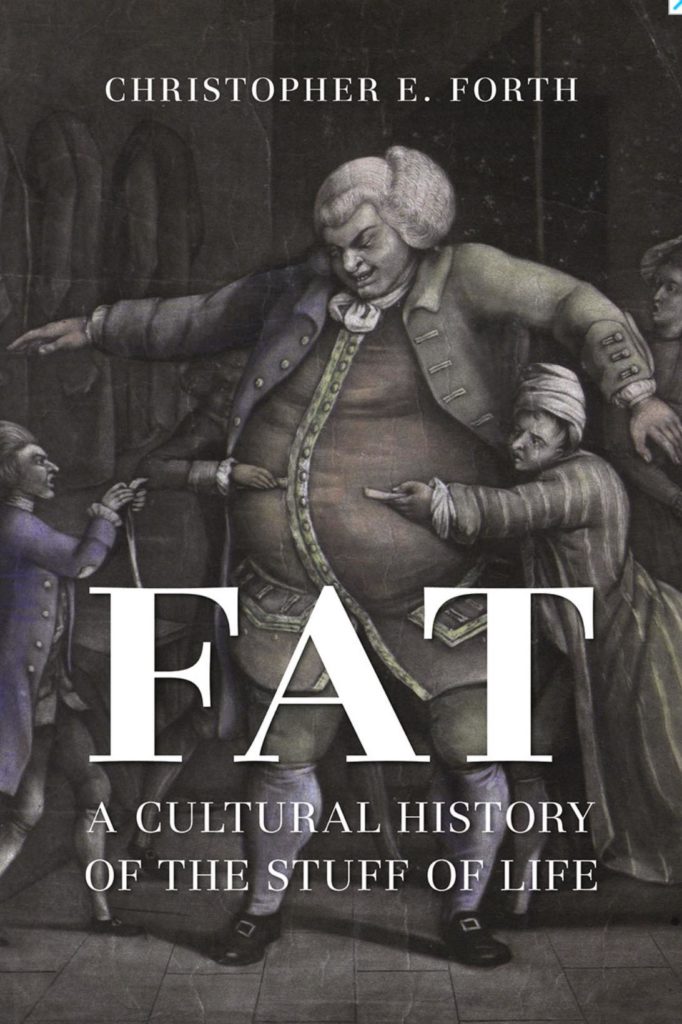Last November, I spoke to Christopher E. Forth about his book, Fat: A Cultural History of the Stuff of Life (Reaktion Books, 2019), which he describes as a ‘study in the formation of stereotypes’, and in particular the negative stereotypes that have accreted round fat, and fat people, over time.
Those stereotypes may have gone into overdrive in the latter part of the 20th century, but Chris shows that there was already ambivalence about corpulence in the ancient world: the building blocks of later stereotypes were fashioned early.
Rather than the familiar narrative of ‘something good becoming ugly and then bad’, Chris shows how an early ambiguity mutated over time. He also reminds us that ‘fat’ is not just an adjective, it’s also a noun, it’s a substance with properties of its own that played an important, sometimes surprising, part in human history.
Rachel Louise Moran, reviewing the book in the journal Medical History, wrote:
‘Forth builds on this existing scholarship to contribute something wholly new to the literature. Through his investment in the history of emotions, his fascination with the literal substance of fat, and the extraordinary temporal and geographic scope of the book, Forth produces something quite unique.
‘[He] uses an extraordinary variety of sources, from ancient artifacts to eighteenth-century political cartoons and paintings, and from colonial travelogues to weight loss advice books from the early twentieth century.’
Chris is a professor of history at the University of Kansas, where his interdisciplinary and thematic research revolves around the cultural history of gender, sexuality, the body, and the senses. When we spoke, he began by telling me how his book had in part grown out of his interest in the Dreyfus affair in late 19th century France and the presentation of masculinity in the battle over Dreyfus’s guilt or innocence.

